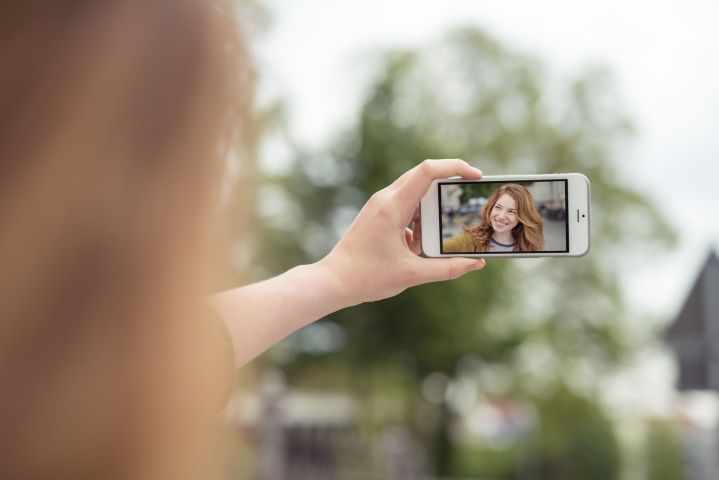
In yet another example of science solving real-world problems, researchers from the University of Waterloo have created a smartphone app that uses an algorithm to guide the perfect selfie.
To find the parameters of a perfect selfie, researchers Dan Vogel and Qifan Li asked thousands of users on Mechanical Turk to review hundreds of artificial selfies, which they generated from 3D digital scans. The Turks were asked to rate the selfies, each of which differed slightly in composition, labeling them as good, bad, or meh.
“We focused on basic principles of composition,” Vogel, a professor of computer science at the University of Waterloo, told Digital Trends, “face size, face position, and lighting direction. These parameters are very fundamental to any photograph. On a technical level, we could also control them very accurately in the thousands of ‘virtual’ selfies we created using 3D computer graphics, and we could recognize them in real time when a person was taking a selfie [by] using computer vision techniques.”
By mathematically modeling the selfie scores, Vogel and Li were able to create an algorithm that can guide a user in how to move his or her camera to take the best selfie. To demonstrate that the algorithm was indeed a good director, the researchers asked real people to take selfies under the app’s guidance and again asked Mechanical Turks to rate them. With the algorithm’s assistance, selfie takers saw a 26-percent improvement in their photos, according to the study.
The researchers are now considering ways to commercialize their technology, both as an app for selfies and to guide photos of other kinds.
“We’ve talked about applying our virtual photo methodology to photos of products for buy-and-sell auction sites like eBay, or real estate photos, vacation landscapes, you name it,” Vogel said. “It really comes down to generating thousands of highly controlled photographs than can be rated by thousands of people so we can generate mathematical models.”
Editors' Recommendations
- You can finally move your WhatsApp chats from Android to iOS
- WhatsApp now lets you make voice and video calls from your computer
- This new Canon photo app will help you decide which pics are worth keeping
- Can you offset your carbon footprint with a smartphone app? Klima thinks so
- WhatsApp will soon let you send money with Facebook Pay


